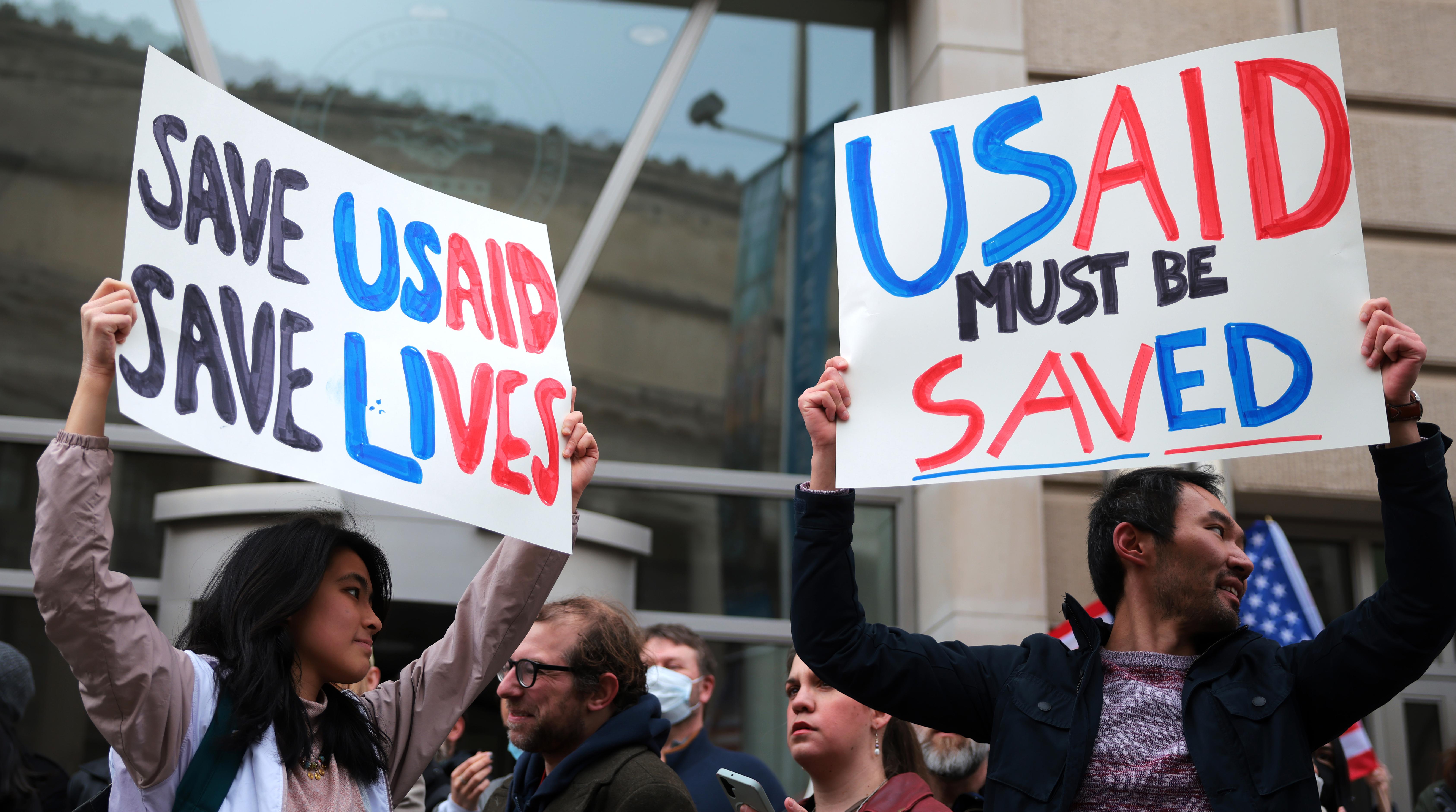A group of health and human rights organisations released a public letter on Tuesday, 18 March, calling on the government to provide a “coordinated emergency plan and increased budget for healthcare services” to mitigate the crisis created by the United States’ move to suspend foreign assistance.
The non-governmental organisations (NGOs) emphasised the need for transparency in the development of a plan to alleviate the impact on the healthcare sector, following the temporary suspension of the US President’s Emergency Plan for Aids Relief (Pepfar).
Pepfar was suspended after US President Donald Trump in January issued an executive order pausing almost all US foreign development assistance for 90 days, pending a review.
On 26 February, the United States Agency for International Development (USAID) — which distributed about half the Pepfar funding for SA, alongside the Centers for Disease Control and Prevention (CDC) — issued notices terminating its Pepfar funding to South African organisations for good, Daily Maverick’s Tamsin Metelerkamp reported.
Read more:
- Trump’s executive orders spark chaos — South Africa’s vital HIV programmes face uncertain future
- Trump’s freeze on HIV/Aids foreign aid is troubling news for the US — here’s why
“During this time, SA Pepfar partners that received stop-work orders, then waivers, have since received termination notices (prior to the 90-day expiry), and some CDC-funded partners received return to work orders until September 2025. The complete list of cancelled contracts is not known. Several clinical trials have been halted or ended prematurely. Thousands of NGO academic workers have been retrenched and services and key testing, counselling, prevention and treatment programmes disrupted or closed,” stated the letter.
“Despite the government indicating that it is seized with the matter and that the National Department of Health (NDoH) is seeking to make provincial arrangements to absorb some services and staff via the public health system, right now, specialised programmes and services are severely affected, and urgent adaptation measures are needed.”
The signatories to the letter included the Health Justice Initiative, the Treatment Action Campaign, SECTION27, African Alliance, Cancer Alliance, Sweat and the Public Service Accountability Monitor at Rhodes University.
The letter was addressed to Health Minister Aaron Motsoaledi, Finance Minister Enoch Godongwana, International Relations and Cooperation Minister Ronald Lamola and President Cyril Ramaphosa.
The organisations previously wrote to Motsoaledi, Godongwana, Lamola and Ramaphosa on 5 and 24 February.
“To date we have not received a response to our questions and concerns,” they said.
Lack of transparency
While Motsoaledi has maintained his department was working on ways of addressing the crisis, the groups said, “None of us are privy to the exact plan so far. We remain concerned that there is not enough transparency in the government’s handling of this matter.”
Read more: Pressure mounts on Health Minister Motsoaledi to remedy ‘catastrophic consequences’ of US aid freeze
Meanwhile, Motsoaledi, taking questions in the National Council of Provinces (NCOP) on Tuesday afternoon, said the termination of Pepfar funding was “a train smash” for people who were employed with the agency in SA.
“That’s a train smash for them — we accept that; we’re not hiding that.”
However, he assured that the supply of antiretroviral (ARV) treatment to people in SA would continue.
“We just want to reassure our people that the treatment goes on,” he said.
Read more:
- Consequences of US HIV/Aids funding withdrawal will be dire
- ‘The axe has fallen’ — Trump’s USAID issues notices to terminate funding for key health programmes across SA
SA has an estimated 7.8 million people living with HIV and, of these, 5.5 million are on ARV treatment. Motsoaledi previously said 90% of these ARVs were funded by this country’s fiscus, while the remaining 10% were paid for by the Geneva-based organisation Global Fund.
About 15,154 staff were funded through Pepfar in SA, he said. Pepfar funded these people directly through a myriad of NGOs, academic and health institutions.
The health organisations said they were concerned over the “continuation of critical health services for key populations” as well as for sexual- and gender-based violence (SGBV) services.
“We are concerned that the current discourse and planning is focused on critical ARV programmes, but ignoring the continuation of several specialised counselling, support, prevention and treatment services for at-risk or key populations — that already face high levels of stigma and discrimination.
“In multiple provinces, we have also received reports that young children, adolescents and families are losing access to psychosocial support, educational services, child protection and SGBV support because of the US funding cuts,” they said.
“We want to be clear: We do not want the Trump administration’s ideological opposition to gender rights, sexual, reproductive, health rights and migrant rights to inform our domestic health policies and budget allocations.”
Budget ‘silent’ about funding shortfalls
In his second attempt at tabling his Budget, Godongwana did not announce any allocation to plug the gap created by the termination of US funding for HIV/Aids and other programmes, Mail & Guardian reported. He announced that, overall, the health budget would grow from R277-billion in 2024/25 to R298.8-billion in 2025/26.
Read more: Godongwana’s Budget promises improved funding for the health sector — but is it enough?
In the letter, the organisations said they were concerned that Godongwana’s Budget tabled on 12 March was “silent about the funding shortfall that the Pepfar cuts have created”.
They questioned why the health allocation did not include a Pepfar-related component and what the plan was to ensure there would be “an urgent, emergency and appropriate allocation of resources to fill the gap” in funding. DM





